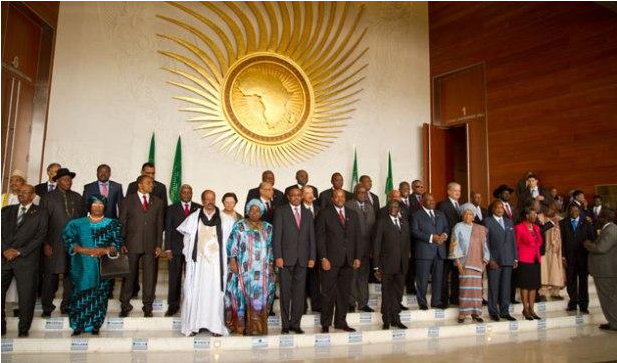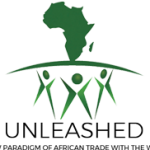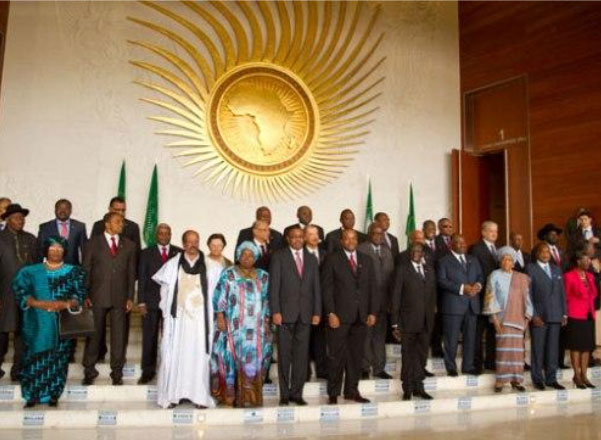This article is a continuation of Re-Engineering Development in African Countries Part 4.
Truth #6

Fig. 1 Methodology of Problem Solving
The sixth is to compartmentalize each challenge by creating mission-specific teams. To successfully manage every aspect of re-engineering for change, leadership should create nuclei of working groups or mission-teams within a master-plan of tasks. In my book, “Unleashed, A New Paradigm of African Trade with the World,” I have outlined a structure that will enable evolution of competitive societies and other important institutions for export industrialization. In other words, leaders must create a grand plan of action. Within the master-plan, there should be mini-plans that cover the scope of the master, each a having a manager tasked and empowered with its accomplishment. For instance, to improve the efficiency of government administration, the mini-plan would include outlining every key function of government that impacts how government delivers its service to the citizens. The department responsible for each task should be identified and specific time-lines for how long it should take to execute each function should be determined. A system of checks and balances should be created that will evaluate performance on an on-going basis and apportion punitive measure for staff, supervisors and ministers whose areas are not performing optimally. This is one example of a mini-plan but it can be done for every area of socio-economic challenges that are facing a given country. The final thing is to do everything with a burning sense of urgency, like the house is on fire—which, metaphorically speaking, it is.
Truth #7
Find the right man for the right job and a put a round peg in every round hole. In my book “Unleashed: A New Paradigm of African Trade with the World,” I profiled two major players in the rise of South Korea and Singapore. In South Korea you had Kim Chung-yum who rose through several portfolios to become then-President Park Chung Hee’s Chief of Staff. In Singapore, you had Dr. Goh Keng Swee who, like his South Korean counterpart held several ministerial portfolios and was the creator and mastermind of Jurong Industrial Estate, now JTC Corporation, and a key component in the improbable rise of Singapore. In the book, I have referred to them as “super ministers.” The reason for that is the impact they had on the success of these countries.
In South Korea, Kim Chung-yum led the effort to electrify the country and accomplished the task in less than 10 years. He inaugurated the export-oriented industrialization drive, selecting the initial products for South Korea after a market research study. He selected O’ Wonchol to head the creation of South Korea’s first machine tools industry that enabled South Korea to become a machine tools manufacturer capable of manufacturing weapons for South Korean defense; develop heavy industries with the capability of building ocean-going vessels; etc. Perhaps his greatest achievement was in helping to negotiate the terms that enabled South Korea to receive technical and financial assistance for the steel industrialization program from Japan.
In Singapore, Dr. Goh also led Singapore’s tourism development that is now contributing more than $30 billion to Singapore’s GDP annually. Tourism development went from a negligible 90,000 visits in the mid 60’s to 12 million visits in 2012. Dr. Goh as Finance minister created the sovereign fund, Tamasek Holdings, in 1974, from investments that Singapore made in companies that relocated to Jurong Industrial Estate and from other companies owned by the government of Singapore. Tamasek has grown into a $223 billion-dollar investment portfolio. Dr. Goh selected Hon Sui Sen as the first chairman of Singapore’s Economic Development Board (EDB), which was responsible for selling Singapore to Western companies. Hon Sui Sen proved to be an astute manager of EDB. He later succeeded Dr. Goh as finance minister of Singapore. In 1982, Euromoney magazine named him finance minister of the year.

Fig. 2 – The right person for the right task, aka round peg for a round hole
Leaders should endeavor to select the very best person they can find for positions that have direct bearing on the success of their countries. People who have the right motivation and who are well-suited to the task can have great impact on a country and people as we have seen with Kim Chung-Yum and Dr. Goh. They solved problems and propelled their country forward. Another example of a leader selecting the right person for a particular task is Park Chung Hee selecting retired South Korean General, Park Tae-joon, to develop and manage Pohang Iron and Steel Company, now POSCO. It was a home-run hire. Park Tae-joon single-handedly willed South Korea to become one of the greatest steel producing nations in the world through his shepherding of the affairs of Pohang Iron and Steel Company. It should be noted that South Korea has little or no raw materials or energy for producing steel. Yet, Pohang became the number one steel producer and exporter in the world under Park Tae-joon and remains one of the top 5 steel producers in the world. The hiring of Park Tae-joon, Dr. Goh Keng Swee, Hon Sui Sen and Kim Chung-yum can be characterized as putting a round peg into a round hole.
Truth #8
 Eschew Conferences and Meetings for Action. There is no other area of the developed or developing world that has more meetings than the African continent. If Africans have more meetings, conferences and summits than any other area but are trailing every other area of the world in performance, maybe it is time to re-think their efficacy. Another way of looking at it is to assess whether the countless meetings are, in fact, a contributor to initiative inertia due to analysis paralysis. African leaders have a lot of meetings and declarations but very few results in tangible activity. For example, there are initiatives that were discussed during the era of the OAU that remains on the drawing board. It is interesting that successful Asian leaders have not engaged in the same degree of meetings and declarations as African leaders. Instead what they have done is take action. One way of taking action is to make plans and create a strategy for bringing the plans to reality. Asian leaders have done more study of what has worked in other countries in order to appropriate best practices for use in their countries. In that vein, African leaders will do well to concentrate on finding out what is working by visiting successful countries, reading about best practices or consulting with appropriate knowledge/information vendors. Holding great “fanfarish” gatherings to rehash the same issues, month after month, year after year, presumes that the end is the meetings rather the meetings being the means to an end. Leaving aside the exorbitant cost of attending and hosting the gatherings to already poor countries, the investment in time is one that should cause reasonable minds to ponder the necessity of it.
Eschew Conferences and Meetings for Action. There is no other area of the developed or developing world that has more meetings than the African continent. If Africans have more meetings, conferences and summits than any other area but are trailing every other area of the world in performance, maybe it is time to re-think their efficacy. Another way of looking at it is to assess whether the countless meetings are, in fact, a contributor to initiative inertia due to analysis paralysis. African leaders have a lot of meetings and declarations but very few results in tangible activity. For example, there are initiatives that were discussed during the era of the OAU that remains on the drawing board. It is interesting that successful Asian leaders have not engaged in the same degree of meetings and declarations as African leaders. Instead what they have done is take action. One way of taking action is to make plans and create a strategy for bringing the plans to reality. Asian leaders have done more study of what has worked in other countries in order to appropriate best practices for use in their countries. In that vein, African leaders will do well to concentrate on finding out what is working by visiting successful countries, reading about best practices or consulting with appropriate knowledge/information vendors. Holding great “fanfarish” gatherings to rehash the same issues, month after month, year after year, presumes that the end is the meetings rather the meetings being the means to an end. Leaving aside the exorbitant cost of attending and hosting the gatherings to already poor countries, the investment in time is one that should cause reasonable minds to ponder the necessity of it.

Fig. 4 – Decades-old decisions have yet to see the light of day
African leaders need to find mirror-nations to mimic. If a country is interested in a type of development strategy that another country has executed successfully, instead of re-learning the process, the country should seek to learn what the country that has a success track record did to achieve its success. But it is more than going on a fact-finding mission. It should include finding people who are versed in the path the country took to offer employment. Visiting institutions that made it possible and also visiting and speaking to CEOs of important businesses. Deng Xiaoping went to Japan, a former sworn enemy of China, to learn about steel manufacturing because they wanted to replicate the success of South Korea’s Pohang Iron and Steel Works (now POSCO). Nippon Steel was the technical partner in Pohang Iron and Steel Works. Then-Chairman Yohishiro Inayama asked Deng Xiaoping a question that South Koreans have made a folklore; “do you have a Park Tae-joon?” Referring, of course, to General Park Tae-joon, the architect of the success of Pohang Iron & Works. It is a reflection of the core truth that tasking the right person and prosecuting a great strategy matter.
Truth #9
The People must be involved in the process of re-engineering Society. One of the attributes of Lee Kuan Yew’s leadership was the ability to bring Singaporeans along on the journey. Nowhere is this more important and necessary than in African countries. There are numerous points of contention not the least of which is allocating scarce resources. African countries are also struggling with tribal and ethnic divisions. The reason for the struggles is failure of leaders to devote quality resources to informing and building a unified electorate. It is critical that a supreme effort be made to inform and educate the citizenry to get their buy-in on socio-economic initiatives that affect their lives. In addition to buy-in, it will help to engender cohesion among the citizenry.
Cultural centers that double as mixed use developments are a great way to begin to inform the general public on government’s initiatives and also to develop a homogenous polity. Cultural centers should be set up to host discussions and lectures where community members can intermingle without regard to race or ethnicity. Call it an indoctrination process or by any suitable moniker but the goal is to teach people to appreciate their common interest in nationhood while preserving unique ethnicities. In other words, a Muslim and Christian citizen each have the same goal of achieving prosperity for their families and peace in the country. The goal is to teach each person to set aside religious differences in order to create the harmonious environment that will enable them to achieve their individual goals. The same process also applies to ethnic challenges. In some countries, there are significant ethnic and religious challenges. It is even more critical for such countries to develop cultural centers.
Truth # 10
Building a success culture for the 21st century
African countries have a great vantage point from which to craft a successful culture. They can study the mistakes others have made and use the knowledge gained from it to build a better cultural foundation for the 21st century. But you have to get going on the task. An ancient Chinese adage states that, “a journey of a thousand miles begins with a single step.” African countries should develop a grand strategy that identifies the overarching goal of the country. Based on the strategy, planners can create agendas for each individual segment of the goal. The fundamental need in African countries is a social-political and economically aware population that is able to play a significant, perchance, activist role in nation building.
That requires extirpating ethnic rivalries and tensions that are the building blocks of strife, selfish political machinations and wars. Eliminating economic and political ignorance through mass instruction of citizens on the responsibility of citizenship in a democratic society and the on the basic elements needed to function and compete in a 21st century world. One of the truly perplexing aspects of the struggle of African countries to become active participants in the global community is the fact that very little “citizen training” has been done in the countries. African countries need training because African societies are new to virtually all the concepts being practiced in the global community.
It is of vital necessity to create a mechanism whereby citizens can gain knowledge about government initiatives and personal development. Through training and lectures, people can learn how to make (better) financial choices and good personal development habits. They can also learn about starting an enterprise and local community development and enhancement initiatives. The mechanism is cultural centers, which was discussed earlier. By developing cultural centers throughout the country government can create jobs as well develop the citizenry.


